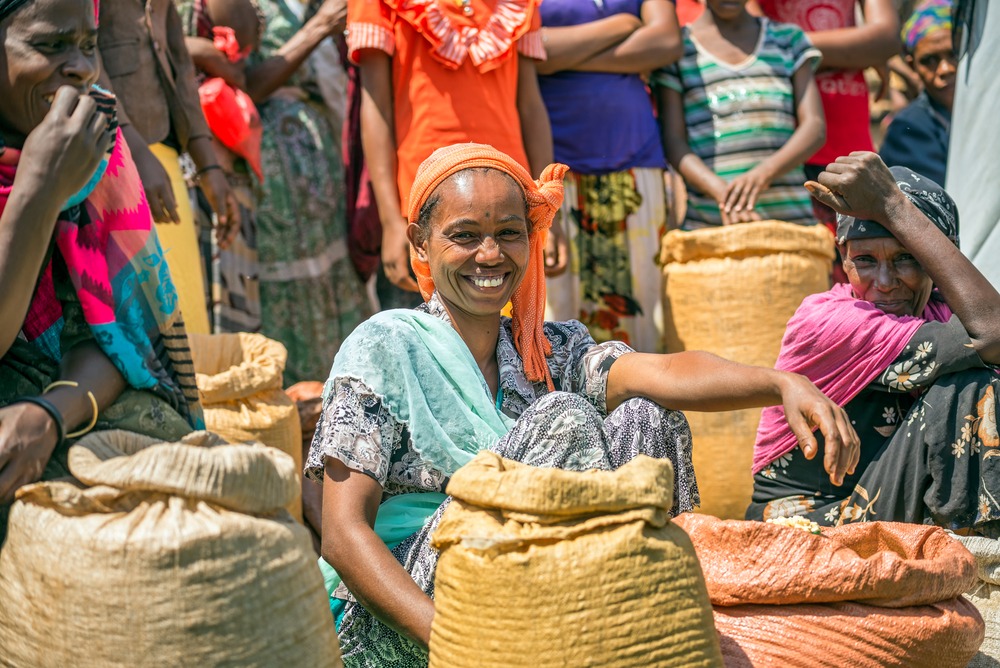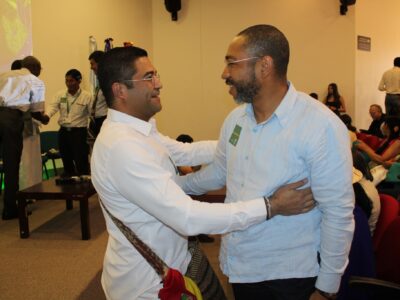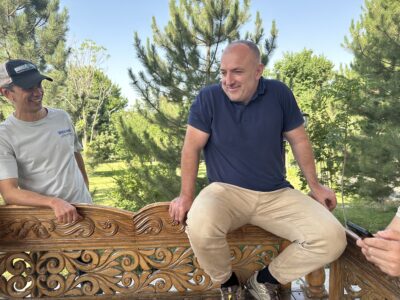
In Ethiopia, livestock contributes to the livelihoods of 60 to 70 percent of the population. Yet the country experiences significant constraints, like the exclusion of women, that limit growth. Since 2017, the Feed Enhancement for Ethiopian Development III (FEED III) project, funded by the U.S. Department of Agriculture and implemented by ACDI/VOCA, has been working to increase Ethiopia’s livestock and poultry productivity by developing the animal feed sector in the Amhara, Oromia, Tigray, and Southern Nations, Nationalities, and Peoples’ (SNNP) regions.
A gender learning study conducted by the FEED III project took a closer look at how its interventions affected gender equality and women’s empowerment and how to strengthen gender inclusion for future projects. The FEED III team conducted focus group discussions with women smallholder farmers and women’s group members and held key informant interviews with FEED III project and government staff from each of the regions. Below are the findings.
Training Increases Incomes and Decision Making
Respondents from the focus group discussions reported that improved knowledge and skills increased their incomes or ability to earn an income. Learning better farming techniques, such as providing clean water to chickens improves their health and allows women to sell them at higher prices.
“Sometimes when I receive ETB 5,000 from my bank account, I doubt it’s mine because I’ve never earned this much money from milk. If I withdraw ETB 3,000, the remaining ETB 2,000 goes to savings, and this means a lot to a woman like me.”
— A women’s group member in Oromia
With more responsibility and higher incomes, many women said their husbands began to see them as equally skilled farmers and income-contributing members of the family. Many women credited FEED III trainings for increasing their capacity to think critically and make decisions about their farms and livestock. This often translated into women making more household decisions, especially around spending, that their husbands previously did not allow them to make.
Easing Women’s Time and Work Burdens Opens Doors to Income-Generation
Women reported that they were burdened by having to travel long distances to gather forage for their livestock. After taking part in trainings, they learned how and where to grow forage near their own homes, eliminating the time and labor associated with travel. With more time, they could take on more income-generating work on the farm.
“Previously, we used to travel long distance to get forage and animal feed. This takes us time to travel, collect and come back home. But now, we are growing it in our backyards, we have saved time.”
— A female smallholder farmer in SNNPR
Successful Training Strategies Improve Gender Equity
To ensure that training met the minimum target of 30 percent female participation, the FEED III team made sure they did not impede on women’s time. They scheduled trainings around holidays, market days, or harvest periods to minimize the pressure on women to choose between completing domestic work and attending trainings. Additionally, due to strong gender roles, many women in Ethiopia lack time and childcare support to attend trainings held far from their homes. FEED III took this into consideration and conducted trainings at the kebele, or ward, level, which allowed women to attend without traveling, and encouraged women to bring their children if they had no other option.
Effective Trainings Materials Accommodate Low Literacy Learners
Women over the age of 15 in Ethiopia experience literacy rates of 44.4 percent, compared to 59.2 percent among men. Those surveyed said that training materials created for varying literacy levels were effective. Using mini, portable projectors and video-based training, FEED III developed materials that all participants could easily understand. The team also translated materials from Amharic to local languages to make them more accessible. In the SNNP Region, where there are extensive local languages, facilitators explained the topics in between sessions held in Amharic.
Looking Forward
Through this study, the FEED III project identified ways to improve going forward. Many of the women surveyed said that, while they felt empowered by new knowledge and skills, there could have been more discussions on gender inequalities across all program activities to boost awareness of the discrimination women face throughout the agriculture sector. Many respondents also suggested that a more effective recruitment strategy could substantially increase women’s participation in trainings. This strategy could involve supporting local government partners in identifying participants or piloting new approaches, like training couples together.
Other respondents said that adding refresher trainings to the schedule could improve women’s retention rates, as many have low literacy levels and are unable to rely on written materials if they forget what was taught during the training. They also stressed the need for every session to combine audiovisual and practical sessions so that training is accessible to women at any literacy level.
Read the full FEED III gender learning study.
Learn more about the FEED III project.
Learn more about our work in Ethiopia.
Comments







